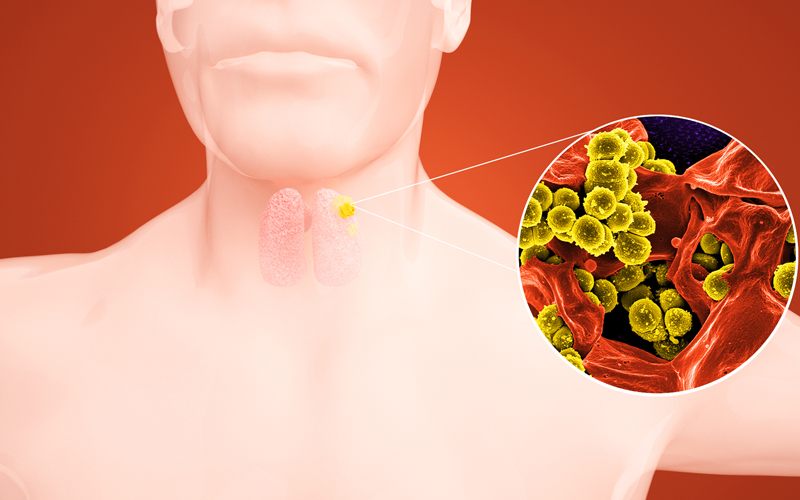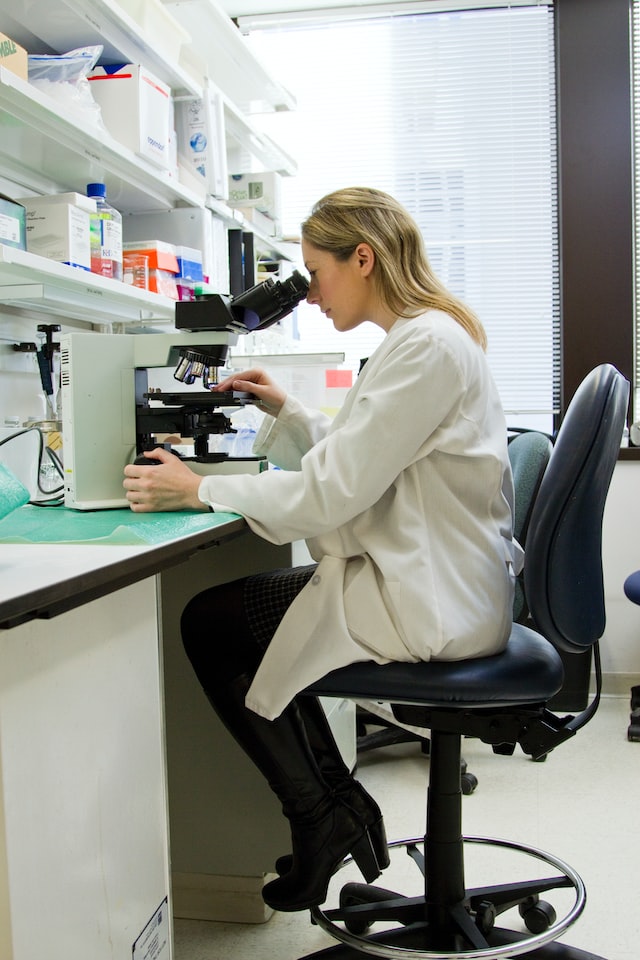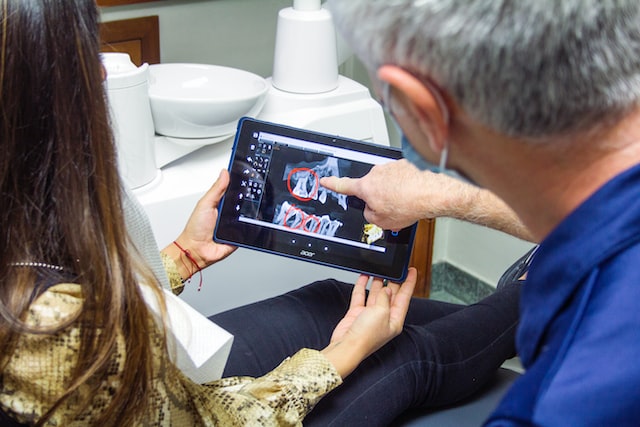Apparatus
Two-Drug Combination For Refractory Thyroid Cancer, 100% Effective!
Data from a study presented at the annual meeting of the European Society of Medical Oncology in 2022 showed that lenvatinib in combination with Pembrolizumab could give 100% efficacy in this group of patients.

Thyroid cancer is often referred to as a "happy cancer" due to its good prognosis, but the exceptions are undifferentiated and hypofractionated thyroid cancers. However, data from a recent study presented at the 2022 European Society of Medical Oncology Annual Meeting showed that lenvatinib in combination with Pembrolizumab could provide 100% efficacy in these patients.

According to data from the phase II ATLEP trial, lenvatinib in combination with Pembrolizumab (drug K) for the treatment of metastatic undifferentiated thyroid cancer and hypofractionated thyroid cancer resulted in substantial tumour shrinkage in many patients, with durable efficacy and a controlled safety profile.
Data from the trial, presented at the European Society of Medical Oncology Annual Meeting 2022, showed that after only 3 months of treatment, the two-drug combination resulted in substantial tumour shrinkage in 34.3% of patients, stable disease in 60% of patients and disease progression in only 5.6% of patients.

Further data show that
In 27 patients with undifferentiated thyroid cancer, the two-drug combination resulted in substantial tumour shrinkage in 51.9% of patients and stable disease without progression in 48.1% of patients within 2 years, with a clinical efficiency of 100%.
In eight patients with undifferentiated thyroid cancer, the combination of the two drugs resulted in significant tumour shrinkage in 75% of the patients and stable disease progression in 25% of the patients within 2 years, also with a clinical efficiency of 100%.
Thyroid cancer is often referred to as a "happy cancer" because the prognosis for this type of cancer is generally good with regular treatment. The exceptions to this are hypofractionated and undifferentiated thyroid cancers, which are highly aggressive and have a high mortality rate.

Researchers say that about 75% of patients with undifferentiated and hypofractionated thyroid cancer have no targetable mutations or fusions, and that chemotherapy is effective in 10% to 20% of these patients. Combining multiple treatment modalities can improve survival by 4-5 months in patients with undifferentiated cancer.
According to a previous retrospective study, in PD-L1 positive patients, lenvatinib in combination with K drugs resulted in substantial tumour shrinkage in 75% of patients. The current study included 35 patients with undifferentiated and hypofractionated thyroid cancer to prospectively assess the efficacy of lenvatinib in combination with K. The vast majority of patients were stage 4C patients, with the remainder being stage 4B patients who had not received prior immune checkpoint inhibitor therapy, as well as those who had not received more than 10 days of lenvatinib treatment. Patients with the BRAFV600E mutation were not eligible for enrolment, but there was no requirement for PD-L1 expression in patients.
Additional results from the trial also showed that:
For patients with undifferentiated cancer, disease did not progress at an average of 10 months after treatment with lenvatinib in combination with K, 41.2% of patients were progression-free at 12 months, 44% of patients were alive at 12 months and 25% of patients had sustained efficacy for more than 20 months.

For patients with hypofractionated cancer, lenvatinib in combination with K drug treatment resulted in no disease progression at an average of 20 months, 75% of patients had no disease progression at 12 months and 75% of patients were alive at 12 months.
In terms of safety, common toxic reactions included hypertension, mucositis and hand-foot syndrome, which were largely associated with lenvatinib.

This study did not analyse the relationship between PD-L1 status and efficacy, and the investigators are subdividing the patients for further analysis, including gene sequencing, to identify other biomarkers that have the potential to lead to good outcomes.
-
![]()
![]() ApparatusDec 24, 2024
ApparatusDec 24, 2024Nature Medicine publishes results of H-drug combined with chemotherapy for first-line treatment of esophageal squamous cell carcinoma
-
![]()
![]() ApparatusDec 23, 2024
ApparatusDec 23, 2024Immune And Astrazeneca Launch Strategic Research Collaboration To Accelerate Drug Target Discovery
-
![]()
![]() ApparatusDec 22, 2024
ApparatusDec 22, 2024The 3D Medical Application Center of the U.S. Army customized assistive devices and artificial limbs for 3D printing of veterans
-
![]()
![]() ApparatusDec 21, 2024
ApparatusDec 21, 2024J. Enzyme Inhib. Med. Chem. | Protac Targeting Aimp2-Dx2: a New Therapy For Lung Cancer
-
![]()
![]() ApparatusDec 20, 2024
ApparatusDec 20, 2024Canada has developed a hand-held detector to help reduce the use of antibiotics




